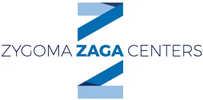Procedures
Pterygoid Dental Implants
What are Pterygoid Dental Implants?
Have you ever been told that you did not have enough bone to support dental implants? Have you ever been told that you needed extensive grafting in order to have dental implants? If that’s the case, then pterygoid dental implants may be right for you. Pterygoid dental implants are a type of dental implant used in cases where traditional implant placement may not be feasible due to insufficient bone in the posterior maxilla (upper jaw). The pterygoid region is an area of the skull located behind the maxillary tuberosity, and it offers an alternative anchoring point for dental implants when the usual sites in the upper jaw are compromised.

Pterygoid Dental Implants Can Be Used when you do not have enough bone
With conventional dental implants one of the main prerequisites is adequate bone mass to support the dental implant. However, pterygoid dental implants can safely be placed even in cases where there is poor maxillary bone quality or a lack of bone mass. This is because pterygoid dental implants are anchored into the pterygoid bone. The pterygoid bones are different than the jaw bones in that these bones do not lose bone mass as a result of missing teeth, periodontal disease, or pressure from dentures or partials. This is why pterygoid dental implants are a great option for replacing missing posterior teeth or anchoring a dental prosthesis.
Pterygoid Implants May Eliminate the Need for Additional Procedures
Dental implants are often coupled with other procedures such as bone grafts to augment the amount of bone available to support dental implants. One common procedure is known as a sinus lift. This is where the thickness of the bone between the oral cavity and sinus cavity is increased to support the implant and to prevent the implant from damaging the sinuses. Typically, the patient would need to wait until the sinus lift bone has matured before the implants can be placed. This is usually around six months. With pterygoid dental implants, however, there is no need for these supplemental procedures. This means less procedures, and less time before you can get you new teeth.
Can you load Pterygoid dental implants immediately?
Yes, because the pterygoid bone is dense and due to the angulation of the dental implant this allows a dental prosthesis to immediately be loaded onto the implants during surgery. This means that your dentist can attach teeth to your implants right away and you won’t have to go without teeth while the dental implants heal.
Frequently Asked Questions (FAQ) About Pterygoid Dental Implants?
Pterygoid dental implants are a type of dental implant used in cases where traditional implant placement is challenging due to significant bone loss in the posterior maxilla (upper jaw). They are placed in the pterygoid region, an area located behind the maxillary tuberosity.
Pterygoid implants are typically recommended when there is extensive bone loss in the posterior maxilla, often resulting from long-term tooth loss, bone resorption, or sinus expansion.
The placement of pterygoid implants is a complex procedure that involves careful planning. Advanced imaging techniques, such as CBCT (cone-beam computed tomography), are often used to assess the anatomy and plan the placement accurately.
Pterygoid implant surgery is typically performed by experienced oral and maxillofacial surgeons or implant specialists. These professionals have the expertise to navigate the complex anatomy of the posterior maxilla.
Pterygoid implants offer a solution for patients with severe bone loss in the posterior maxilla, eliminating the need for additional bone grafting procedures. They can be part of a comprehensive full-mouth reconstruction strategy.
Pterygoid implants are case-specific, and not all patients require or are suitable for this type of implant. The decision to use pterygoid implants depends on individual factors, such as oral health, bone structure, and treatment needs.
Due to the proximity to important anatomical structures, such as the maxillary sinus and pterygopalatine fossa, careful planning and expertise are essential. Patients should consult with qualified dental professionals to determine the most appropriate treatment plan for their specific situation.
The recovery process for pterygoid implants is similar to that of traditional dental implants. Patients may experience some discomfort, swelling, and minor bleeding immediately after the surgery. Post-operative care instructions provided by the dental professional should be followed for optimal healing.
Pterygoid implants, like traditional implants, are designed to be a long-term solution. With proper oral hygiene and regular dental check-ups, they can last for many years. Individual results may vary, and the success of the implants depends on factors such as oral care, overall health, and lifestyle.
ZAGA Center Miami

Have you ever been told that you did not have enough bone to support dental implants? Have you ever been told that you needed extensive grafting in order to have dental implants? If that’s the case, then pterygoid dental implants may be right for you. Pterygoid dental implants are a type of dental implant used in cases where traditional implant placement may not be feasible due to insufficient bone in the posterior maxilla (upper jaw). The pterygoid region is an area of the skull located behind the maxillary tuberosity, and it offers an alternative anchoring point for dental implants when the usual sites in the upper jaw are compromised.
What does it mean to be a Zaga center?
Our practice is one of a few Zaga centers in the whole world. Zaga centers are unique surgery practices that specialize in placing zygomatic implants to help patients restore their smile and functionality. Zaga trained doctors have additional training, certifications, and special knowledge that allows them to do advanced treatment planning and surgical placement of zygomatic implants in patients that are not candidates for regular dental implants.
Get in touch
- Monday to Thursday 9AM - 5PM | Friday 7:30AM - 3PM
- Aventura: (305) 936-5974 | Miami: (305) 538-4556
- 2999 NE 191st St #607, Miami, FL 33180
- Golden Medical Office Building 4308 Alto Rd #850, Miami Beach, FL 33140
